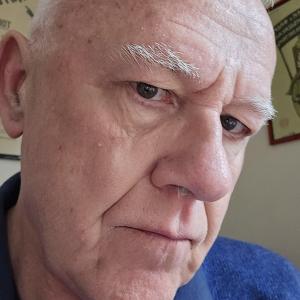
I am currently completing two complementary but independent and self-standing books which are contracted to appear with Cambridge University Press. Both are concerned with the Chinese Communist Party (CCP) during the era of Mao Zedong, both deal with religion, and both combine political with social and cultural history. Both are concerned with what I call ‘supernatural politics’, i.e. those zones where the culture and politics of the CCP interacted, resonated or overlapped with folk religious culture (book 1); or, conversely, where ordinary people used folk belief and ritual to understand and contest the power of the state and, relatedly, sought to expand their power through recourse to non-visible entities (book 2). Both books are based on substantial work in archives in the PRC and on so-called neibu (for internal circulation only) publications -- sources that are now under restricted access. The fundamental aims of the two books, however, are quite distinct. The first, Supernatural Politics: Mao Zedong and the Drive to Eliminate Religion in China, 1949-79, focuses on the ideological and institutional policies of the CCP towards the five religions that it recognized, and towards folk religion, which it did not. A central concern is to explore what the CCP’s very mixed record in seeking to eliminate religion tells us about the workings of the party-state and the limits of its power. The second volume, Communism in an Enchanted World: Chinese Folk Religion under Mao Zedong, focuses on the many dimensions of folk religion and on the ritual specialists who sustained it, and on the grassroots interventions of the CCP to eliminate what it called ‘feudal superstition’. A central concern is to explore how folk religion survived, despite prolonged ideological and political assault and, relatedly, how it accommodated to, and was shaped by, the prodigious socio-economic and political changes unleashed after 1949, and was poised to make a remarkable comeback after 1980.
I am an Emeritus Fellow of All Souls College, Oxford, having been a Senior Research Fellow from 2012-2019.
I taught at the University of Essex from 1977 to 2008, becoming a full professor in 1991.
From 2008 to 2012, I was Professor of Comparative History at the European University Institute, Florence.
- History of modern Russia/Soviet Union
- History of modern China
- Comparative history
Link to CV
Selected Publications:
- Russia in Revolution: An Empire in Crisis, 1890 to 1928 (Oxford: Oxford University Press, 2017)
[Winner of the English PEN Hessell-Tiltman Prize, 2018; and the British Association of Slavic and East European Studies Alec Nove Prize, 2017] - (Editor), The Oxford Handbook of the History of Communism (Oxford: Oxford University Press, 2014)
- Revolution and the People in Russia and China: A Comparative History (Cambridge: Cambridge University Press, 2008)
- Like Cattle and Horses: Nationalism and Labor in Shanghai, 1895-1927 (Durham NC: Duke University Press, 2002)
- A Road is Made: Communism in Shanghai, 1920-27 (Honolulu/ Richmond, UK: Curzon Press/University of Hawaii Press, 2000)
- Red Petrograd: Revolution in the Factories, 1917-18 (Cambridge: Cambridge University Press, 1983)
- Fellow of the British Academy (2014-)
- Fellow of the Royal Historical Society (1995-)
- Honorary Fellow, Oriel College, Oxford (2018-)
- I am a member of the editorial boards of ten historical journals. I was a member of the board of Past and Present from 1995 to 2022 (including as assistant editor from January 2009 and senior editor from January 2013-16).
I was a teacher of undergraduates at University of Essex for almost thirty years. I have supervised 26 PhD theses at Essex, the European University Institute, and Oxford University.
I have received major research grants from the Arts and Humanities Research Council and the Economic and Social Research Council. I have been awarded research leave fellowships from the British Academy and the Nuffield Foundation, plus various travel grants.